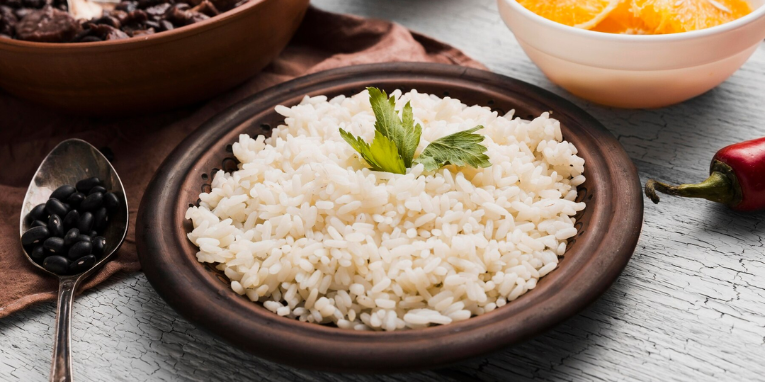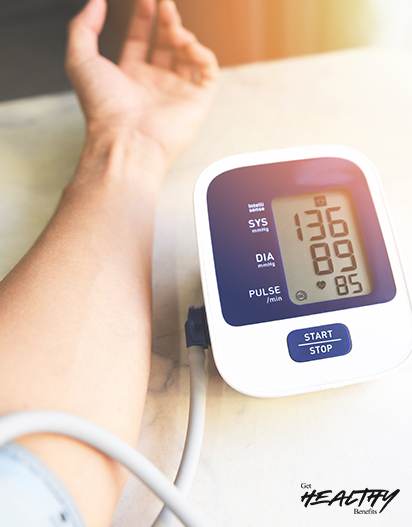Is Basmati Rice Good for Diabetics?
Basmati rice is a popular type of long-grain rice. They are mostly consumed in different parts of the world. Mostly, in India and Pakistan. They are mostly known for their distant Aroma and flavor. Basmati rice has gained popularity not only for its taste but also for its potential health benefits.
They get fluffy when they are cooked. Basmati rice is a staple in many South Asian cuisines. It is often used in dishes such as Biryani, Pilaf and curry. This type of rice is also popular in Middle Eastern and Persian cuisines. Basmati rice is typically aged for at least a year old being sold. This helps them to enhance the flavor and aroma.
Additionally, Basmati rice is a good source of carbohydrates. It also contains some protein and fiber. It is also naturally gluten-free. It is a suitable option for those with gluten sensitivity.
One common question that also arises is whether Basmati is good for diabetics. In this article, we will examine the nutrient profile and chart of Basmati rice. Get to know the gi of Basmati rice and the Basmati rice glycemic index. Let us dive into the potential benefits of Basmati rice.
Nutrient Profile
Basmati rice is a good source of Carbohydrates providing energy to fuel our daily activities. It also contains some protein and fiber together in smaller amounts. It also has whole grains. In terms of vitamins and minerals Basmati rice is a good source of vitamin B. It also has thiamine, niacin and folate. It also can change minerals such as Magnesium, Phosphorus, and Selenium. Here is a detailed breakdown of the key nutrients of Basmati rice which is important for diabetics.
Carbohydrates
Basmati rice is a good source of carbohydrates. They provide about 35 grams per 100-gram serving. Carbohydrates are the main nutrients that affect blood sugar levels. Diabetics need to monitor their carbohydrate intake. They should choose whole grains like Basmati rice which has a lower glycemic index.
Fibre
Basmati rice contains about 0.6 grams of fiber per 100-gram serving. Fiber is important for regulating blood sugar levels and digestive health. They provide a full feeling. Diabetics should aim to include fiber-rich foods and their diet to help manage blood sugar levels.
Protein
Basmati rice provides about 3 grams of protein for a 100-gram serving. Protein is essential for building and repairing tissues. It can help slow down the absorption of Carbohydrates. Which may help prevent blood and sugar Spikes. Diabetes should include sources of lean proteins in their means to help balance blood sugar levels.
Fat
Basmati rice has a low-fat content. It has 0.5 grams of fat per hundred-gram serving. Fats reduce the risk of heart disease. Basmati rice has a very low index of fat. Diabetics should focus on great nutrient-fat food such as seeds, olive oil, and dry nuts.
Vitamins and Minerals
Basmati rice is enriched with vitamins and minerals. It includes a lot of different minerals that are healthy for a diabetic body. The nutrients play a powerful role in the metabolism and nerve function. They also provide antioxidant protection. Basmati rice can be taken by diabetics because they are nutrient food.
When including Basmati rice in a diabetic meal plan it's important to consider portion sizes. Period with sources of protein and fiber and monitor blood sugar levels to ensure they stay within target ranges. Consulting with a registered dietitian or healthcare provider can help individuals with Diabetes. It can create a balanced life and personalized meal plan.
Nutrient Chart
Here is a breakdown of the nutrients found in one cup (cooked) of basmati rice:
Energy 148 kcal
Protein 3.52 g
Carbohydrates 32.39 g
Fiber 0.7 g
Calcium 14 mg
Potassium 42 mg
Total Sugars 0 g
The Glycemic Index
The Glycemic index is a scale that ranks carbohydrates based on how quickly they raise blood sugar levels. Foods with high gi are rapidly digested and absorbed. They cause a spike and blood sugar levels. While foods with low gi are digested more slowly. It results in a more gradual increase in blood sugar levels.
Now if we talk about the g i of basmati rice it is very moderate. The Basmati rice Glycemic Index ranges from 50 to 58 depending on the variety and cooking method. This means that basmati rice is less likely to cause a rapid spike in blood sugar levels compared to high glycemic index foods like white bread or sugary snacks.
There has been a lot of research on is basmati rice is good for diabetics. Basmati rice can control blood sugar levels in individuals with diabetes.
Benefits of Basmati Rice For Diabetic People
Despite being a source of Carbohydrates basmati rice can still be a part of a healthy diet for diabetics. Basmati rice glycemic index helps to regulate blood sugar levels preventing sudden Spikes and crushes. Additionally, basmati rice is low in fat and cholesterol making it a hard healthy choice. The fiber content in Basmati rice can also help improve digestion and promote a feeling of fullness which may aid in weight management.
Let us look into the benefits of Basmati rice for individuals who are diagnosed with Diabetes:
Lower Blood Sugar Level
Basmati rice glycemic index or the GI of basmati rice compared to other kinds of rice is very low. This means it makes a slow and steadier increase in blood sugar levels after having the Basmati Rice. This can ease the task for Diabetics to better manage their blood sugar levels.
Research presented in the International Journal of Food Sciences and Nutrition stated that the blood sugar level remains low from the intake of Basmati Rice. Having basmati rice is better because they have a lower effect on diabetes than the intake of another type of rice. This study showed the supremacy of basmati rice over other types of rice.
Rich in Nutrients
Basmati rice is rich in nutrients and a great source of it. It has fiber, carbohydrates, protein, and certain vitamins and minerals. Diabetics should balance their diets with basmati rice so that they can stay healthy and enjoy rice.
Lowers Hunger
The fiber content in basmati rice can help promote a feeling of fullness. This aids in weight management and blood sugar control for individuals with diabetes.
There is also a different study From the Journal of Nutrition and Metabolism. This study stated that basmati rice can be substituted with other foods. The gi of Basmati rice is also a very deep factor.
Easy Preparation
Basmati rice is easy to cook and can be used in diverse receptacles and cookeries. It is easy to prepare and can be added or served in different meal plants. It is a reasonable option for people managing diabetes.
Improves Digestive Health
Basmati rice can improve health. It also allows you to have a better digestive system. The fiber in the rice helps regulate and improve the digestive health of the diabetic. For individuals who are facing Diabetics and have Gastro intestine issues these basmati rice are beneficial for them.
When you are having basmati rice always remember to have a certain portion. Basmati rice can be taken with vegetables or other protein and takes. Basmati rice helps you maintain blood sugar levels to ensure that the diet you have is stable.
Conclusion
Diabetics can have basmati rice while maintaining their diet in a proportional form. Basmati rice glycemic index is very necessary. The nutrient profile and the potential health benefits of basmati rice make it a very wonderful option for people who are controlling their blood sugar levels.
Diabetic people need to rehearse portion control. Basmati rice can be carried as a side meal as it is a nutritious food. The meals of a diabetic person should be very well-rounded.
A lot of Diabetics are not certain of how they should take their meals. To clear this misconception diabetics should always be concerned with the registered dietitian.
Share this post
Subscribe to new posts











